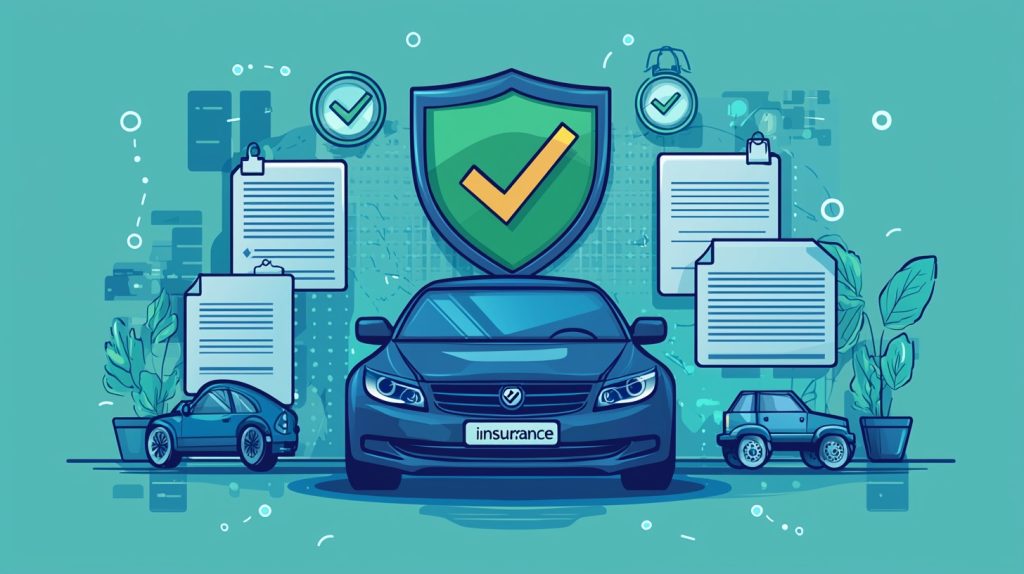When running a business, having the right auto insurance is essential. Knowing how to choose auto insurance for your company’s vehicles ensures you’re protected and prepared. Business car insurance, unlike personal policies, is specifically designed to cover vehicles used for commercial purposes. Doing your research, understanding what business auto insurance entails, and obtaining a quote will help simplify your operations and provide peace of mind.
What Is business car insurance?
Business car insurance, often called a “Business Automobile Policy” (BAP) or “Business Auto Coverage Form,” provides coverage for vehicles used for business activities. According to Investopedia, this includes cars, trucks, or vans owned or leased by the company, as well as employee-owned vehicles used for work purposes. A BAP covers work-related use, such as traveling between offices or across the country for business needs. However, it does not cover regular commuting to a single location.
Types of coverage in a business automobile policy
A strong BAP typically includes property damage, liability coverage, and more, depending on your needs. If you’re leasing or financing a vehicle, additional coverage might be required. Here’s a breakdown of the main coverage types:
- Collision coverage: This pays for damage to your vehicle caused by a traffic accident or hitting a stationary object (e.g., a fence or pole). It applies even if you’re at fault. However, it doesn’t cover falling objects or theft, which fall under comprehensive coverage.
- Comprehensive coverage: This covers damage from events outside your control, such as theft, vandalism, natural disasters (e.g., hurricanes, earthquakes), hitting an animal, or falling objects like hail or tree branches.
- Liability coverage: A must-have, liability insurance covers damages or injuries caused by your employee or company vehicle to others. It helps pay for legal claims if someone files against your business after an accident. Most states require liability insurance as part of their minimum coverage. However, it may not cover reckless or impaired driving, depending on state laws.

Do i need business car insurance?
If you use your vehicle for more than just commuting, you likely need business car insurance. Here are common scenarios where a BAP is required:
- Company-owned or leased vehicles: If your company owns or leases a vehicle, it requires business coverage.
- High mileage for work: Driving extensive distances for business, including ridesharing or delivery services, typically requires a BAP.
- Large vehicles or heavy loads: Vehicles over 10,000 pounds or those carrying loads exceeding 2,000 pounds need specialized coverage.
- Frequent travel: Regular travel to various locations, including other states, cities, job sites, or offices, requires business insurance.
- Carpooling or shuttling: If your job involves transporting colleagues, clients, or management to meetings or worksites, a BAP is essential.
Even if these examples don’t apply, you may still need business car insurance if you use your vehicle for work-related errands, such as trips to the bank, post office, or training sessions.
With the right coverage, your business can stay protected, no matter where the road takes you.
What’s the difference between personal and business car insurance?
Business auto insurance is designed for vehicles used for work purposes. These vehicles typically cover more miles and are used more frequently than personal cars, which increases the risk of accidents. As a result, business policies often come with higher coverage limits.
On the other hand, personal auto insurance only covers claims related to non-work-related use, such as commuting or leisure travel. These policies generally have lower coverage limits and are more affordable.
However, if you’re using your personal vehicle for work and get into an accident, your claim may be denied without a business auto policy (BAP). Sole proprietors, in particular, who regularly use their personal vehicle for work should consider a business car insurance policy, even if the majority of their driving is personal. This ensures proper coverage in both professional and personal scenarios.



